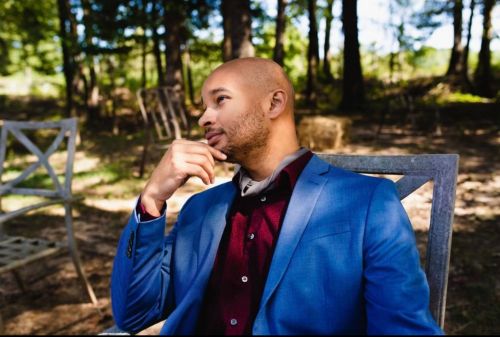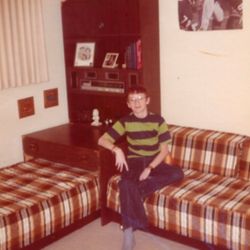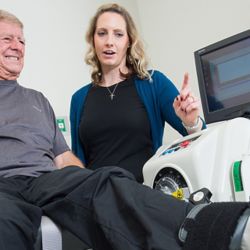My Cancer Survivor Story: Choosing a clinical trial to overcome medulloblastoma
Ricky Terry Jr. was diagnosed with medulloblastoma in 2016 when he was 22. At first, he thought he had migraines.
“They would kind of come, grip me, and then let go,” Ricky said. “Those started to become more and more frequent.”
Ricky tried to keep living his daily life and doing activities he enjoyed.
But one day Ricky had a migraine that did not stop.
“I thought my head was going to explode,” he said. “I was taken to the hospital, and they did some CT scans and some MRIs. That’s how I found out I had high-risk metastatic medulloblastoma.”

When Ricky needed treatment for stage 4 medulloblastoma, he decided a clinical trial at St. Jude Children’s Research Hospital was the right option for him.
Dealing with his diagnosis
The cancer diagnosis shook Ricky. But family and friends helped him stay strong.
“I relied on my support system heavily. We all understood that this was our new normal, and that we were going to get through this as best we can. That’s all we could do,” Ricky said. “It was a very, very stressful time in our lives.”
Ricky’s situation was difficult because his medulloblastoma was a rare type of cancer. He searched for clinical trials.
“I knew that clinical trials were specific. You had to have the exact qualifications or diagnosis to participate in those kinds of trials,” Ricky said.
Then he found a clinical trial. He was at the top of the age range. That meant he would get treatment at a pediatric hospital – St. Jude Children’s Research Hospital.
It is unbelievable how effective it has been to get me from where I was when I first started the trial to this point. I am 100% back. I'm able to travel. I'm able enjoy my life.
Taking part in a clinical trial
Ricky says his care team explained every step of the process so that he could make informed decisions.
“The care team prepared me by essentially telling me everything. I felt like I was a bit different because I was older than a lot of the patients that they normally see,” Ricky said. “They were able to give me all the information. And so, I really felt like I knew everything that I needed to know as far as deciding whether to participate in a clinical trial.”
Ricky and his family decided to move forward with treatment through the clinical trial. His treatment lasted several months.
“It started with six weeks of proton-beam radiation therapy. And then I ended up having intravenous chemotherapy once a week for four months followed by a special chemotherapy pill that I took for 6 months,” Ricky said. “And after that, it was general things like physical therapy and neurology checkups.”
Moving forward with life
Today, he’s healthy and thriving.
“It is unbelievable how effective it has been to get me from where I was when I first started the trial to this point,” Ricky said. “I am 100% back. I'm able to travel. I'm able enjoy my life.”
Ricky spends his time playing video games with his fiancée and watching movies and TV shows. He also visits with his 3 brothers and his future brother and sister-in-law.
Sharing advice with patients and families
Ricky stresses the importance of staying close to family and friends after a cancer diagnosis and during treatment.
“Utilize your support system,” Ricky said. “I think that your support system is one of the most important ways to get through any aspect of a clinical trial or just a cancer diagnosis in general.”
Also, Ricky said patients should feel comfortable asking questions.
“Don’t just push to do it. Get all the information you need so that you can decide for yourself,” he said. “And don’t be afraid to lean on the people around you.”





